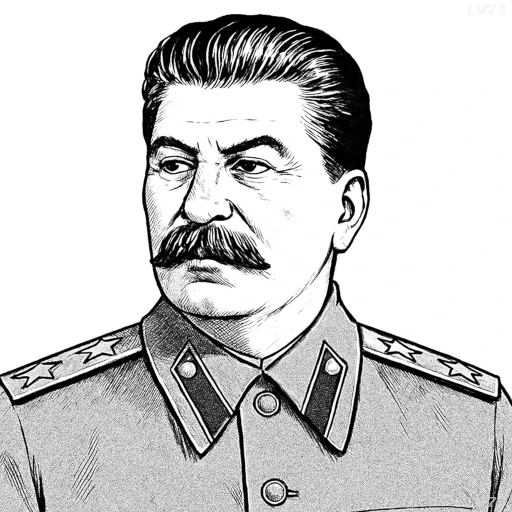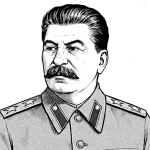“Everyone imposes his own system as far as his army can reach.”

- December 18, 1878 – March 5, 1953
- Born in Georgia
- Politician
table of contents
Quote
“Everyone imposes his own system as far as his army can reach.”
Explanation
This quote highlights the relationship between power and control, particularly how those with military strength are able to enforce their ideological systems upon others. For Stalin, this was a stark reality of the geopolitical struggle during his time. His belief was that military force was the primary means by which one could impose political will, and that power was measured by the extent of one’s military influence. Under Stalin, the Soviet Union sought to expand its control both within and outside its borders, often using military power to enforce Soviet ideology, such as during the Eastern Bloc’s establishment after World War II or in the invasion of Finland. Stalin saw the military as a key tool to secure the Soviet system and expand the influence of Marxism-Leninism across the globe.
Historically, this philosophy is evident in Stalin’s use of military might to achieve and maintain his vision for the Soviet Union, including the Red Army’s victories in World War II, which ultimately expanded Soviet influence in Eastern Europe. The quote also reflects the totalitarian nature of Stalin’s rule, where military strength was used to suppress any potential opposition, whether internal or external. Stalin’s system of control extended beyond just political and economic structures—military domination was seen as essential to ensuring the survival of his regime and its ideology.
In contemporary times, this quote speaks to the ways in which military power can be used to forcefully spread one’s beliefs or systems, often at the expense of sovereignty and human rights. It serves as a reminder of the dangers of power imbalances in the global community and the need for peaceful diplomacy, rather than military intervention, to resolve conflicts. The notion that a powerful army can enforce a system raises critical concerns about the ethics of military engagement and the importance of international cooperation and respect for individual freedoms in maintaining world peace.
Would you like to share your impressions or related stories about this quote in the comments section?

